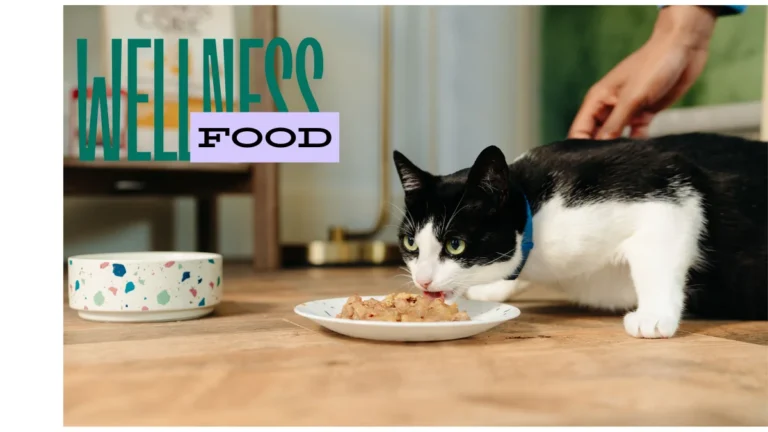Introduction:
Keeping your active and comfortable throughout its life is essential. Many cats, especially as they age, can experience joint issues. Ensuring they receive proper nutrition, including vitamins for joint health, is one of the best ways to support their mobility. In this article, we’ll explore the key vitamins that promote healthy joints, signs your cat might need them, and how to introduce these supplements into their diet effectively.
Understanding Joint Issues in Cats
Cats, like humans, rely heavily on their joints for flexibility and movement. With time, natural wear and tear or conditions like arthritis can cause joint problems, leading to stiffness, pain, and reduced activity levels. Cats tend to hide discomfort, so it can be tricky to detect joint health problems early. If your cat has trouble jumping, shows reluctance to move, or walks differently, it might be time to consider specialized vitamins for joint health.
Why Joint Health Matters for Cats
Felines need solid joints for versatility as well as for mental prosperity. Having the option to hop, climb, and investigate is pivotal for their bliss. Joint torment can cause a reduction in actual work, which could prompt weight gain, sadness, and other wellbeing concerns. In this manner, dealing with their joints through diet and enhancements right off the bat can forestall serious issues further down the road. Nutrients intended for felines in view of joint wellbeing can assume a crucial part in keeping up with their adaptability and solace.
Key Vitamins and Nutrients for Joint Health in Cats
Several vitamins and nutrients are known to improve joint health. Below are some of the most effective ones:
Vitamin D
Vitamin D helps with calcium absorption, ensuring strong bones and joints. A deficiency in Vitamin D can make bones weak and joints more susceptible to damage.
Vitamin E
Vitamin E acts as an antioxidant, reducing oxidative stress in joints. This is especially beneficial for older cats who may be experiencing wear and tear in their joints.
Vitamin C
While cats can naturally synthesize some Vitamin C, supplementing their diet can boost collagen production. Collagen is essential for cartilage health, which cushions the joints.
Glucosamine and Chondroitin
These two compounds are crucial for rebuilding cartilage and reducing inflammation. They are often combined in joint supplements to enhance their effectiveness.
Omega-3 Fatty Acids
Though technically not a vitamin, omega-3s have powerful anti-inflammatory properties. Fish oils rich in EPA and DHA can significantly reduce joint pain and improve mobility in cats.
Signs Your Cat May Need Joint Health Vitamins
Recognizing the early signs of joint issues in your cat can help you intervene with the right vitamins before the condition worsens. Here are some key indicators:
- Reluctance to jump onto high surfaces
- Difficulty climbing stairs or getting into the litter box
- Limping or stiffness after resting
- Increased irritability when touched
- Decreased playfulness or grooming
If you notice any of these signs, it might be worth discussing joint supplements with your veterinarian.
Natural vs. Synthetic Vitamins: Which is Better?
Choosing between natural and synthetic vitamins for your cat’s joint health can be confusing. Natural vitamins are derived from whole food sources, which means they are more bioavailable—easier for your cat’s body to absorb. On the other hand, synthetic vitamins are often more affordable and still provide the necessary nutrients. It’s essential to balance quality with effectiveness when choosing a product.
How to Introduce Joint Health Vitamins to Your Cat’s Diet
Adding new vitamins to your cat’s diet requires patience. Some cats may resist new supplements, so gradual introduction is key. Here are some tips for success:
- Start Slow: Begin with a small dose and gradually increase to the recommended amount.
- Use Treats: Many joint health supplements come in treat form, which can make it easier to administer.
- Mix with Food: If the supplement is in powder form, try mixing it with your cat’s favorite wet food.
- Monitor for Reactions: Always watch for signs of allergies or digestive upset after introducing a new supplement.
Consulting with Your Veterinarian
Before starting your cat Healthy Vitamins for Cats with Joint Health on any new vitamin or supplement, it’s crucial to consult with your veterinarian. Your vet can recommend the right dosage and type of supplement based on your cat’s age, weight, and health status. Additionally, some joint problems may require prescription medications alongside supplements.
Potential Risks of Over-Supplementation
While nutrients are fundamental for wellbeing, giving an excessive amount of can bring on some issues. Over-supplementation of specific nutrients, similar to Vitamin D, can prompt harmfulness. Continuously keep the suggested measurements rules and try not to give human enhancements to felines, as they might contain destructive fixings.
Recommended Products for Cat Joint Health
There are many products on the market that cater to cat joint health. Look for ones that contain a combination of glucosamine, chondroitin, and omega-3 fatty acids. Some trusted brands include:
- Cosequin for Cats
- Dasuquin with MSM
- Nutramax Joint Health Supplements
Reading customer reviews and consulting with your vet can help you choose the best product for your cat.
Diet Tips to Support Joint Health
Notwithstanding supplements, taking care of your feline and a decent eating regimen is essential for joint wellbeing. Search for high-protein feline food sources with added nutrients and minerals. Try not to take care of your feline with such a large number of carbs, as overabundant weight can put extra weight on the joints. Counting normal wellsprings of omega-3s, similar to salmon or fish, can additionally upgrade joint wellbeing.
Preventing Joint Problems in Younger Cats
Preventative care is the best approach to joint health. Even if your cat doesn’t show signs of joint issues, starting them on a joint-friendly diet early can make a significant difference as they age. Maintaining a healthy weight, providing regular exercise, and offering joint-supporting vitamins will keep them agile and happy for years to come.
Conclusion:
Maintaining joint health in cats is essential for their overall well-being. With the right combination of vitamins, such as Vitamin D, C, E, and nutrients like glucosamine and omega-3s, you can ensure your cat remains mobile and comfortable throughout its life. Recognizing the signs of joint problems early and consulting with a veterinarian will allow you to make informed choices about supplements. A proactive approach, including a balanced diet, supplements, and regular vet check-ups, will give your cat the best chance at a pain-free, active life. cat Healthy Vitamins for Cats with Joint Health.
FAQ:
Can I give my cat human joint supplements like glucosamine?
No, you should avoid giving your cat human supplements. Many human supplements contain ingredients or dosages that can be toxic to cats, such as xylitol, an artificial sweetener often found in human products. Cats have specific nutritional needs, and it’s best to use supplements formulated for them, like Cosequin or Dasuquin. Always consult with your veterinarian before introducing any new supplement to your cat’s routine.
How long does it take for joint supplements to show results in cats?
Joint supplements for Cat Healthy Vitamins for Cats with Joint Health, such as those containing glucosamine, chondroitin, and omega-3 fatty acids, typically take four to six weeks to show noticeable improvement. However, results may vary depending on the severity of the joint issue, the cat’s age, and overall health. It’s important to administer the supplement consistently and follow the recommended dosage. If there’s no improvement after a couple of months, consult your veterinarian for further guidance.




